APPAM Policy Council and Leadership Election
The Policy Council is APPAM's governing board and is responsible for setting policy and creating strategy for the Association. It currently consists of four elected cohorts serving staggered, four-year terms of office. The APPAM officers (ex officio voting); the APPAM Executive Director and the Editor of JPAM (ex-officio non-voting) comprise the Executive Committee; the Executive Committee is also part of the Policy Council.
Elections for the new four-person cohort on the Policy Council, President-Elect, Vice President and Treasurer begins on Monday, December 19th. The election will run until midnight Eastern Time on January 19th. Ballots will be emailed to all APPAM members in good standing.
Among the four person cohort for the Policy Council, one is a researcher in a non-academic setting; one is an institutional representative elected by the Committee of Institutional Representatives; one is a researcher in an academic setting; and one is an early career researcher in an academic setting. All will serve four-year terms.
Finally, one student is appointed annually to serve a two-year term on the Policy Council. There are two student seats on the Board and one new student is selected for service each year.
You can view a list of the current APPAM Officers, descriptions of each officer position, and the current APPAM Policy Council Members.
How to Vote
Voting for the next Policy Council cohort, who will serve from 2023 through 2026, and for Vice President and Treasurer, who will serve from 2023 through 2024, begins December 19th. The election will conclude at midnight, Eastern Time, on January 19th.
Follow the links below to the list of all nominees on this year's ballot. All current members will receive email instructions on how to vote on December 19th and will receive periodic reminders to vote until the January 19th deadline. If your membership has lapsed, you will not receive an e-mail with voting instructions. If you want to check the status of your membership, please do so here. If you have not received an e-mail and feel that your membership is current, please contact Tara Sheehan.
Leadership Nominees
The following is a list of nominees for APPAM's Officer Positions of Vice President and Treasurer. Please note that President-Elect, Don Moynihan, was appointed to his position by the APPAM Nominating Committee and voted in by acclamation at the 2022 Fall Research Conference Membership Meeting. His statement is being presented for transparency and completeness and is included in the ballot, although he is running unopposed.
President-Elect Nominee
Uncontested; serves a 1-year term, automatically becomes APPAM President after the 2023 Fall Research Conference.
Don Moynihan, Georgetown University
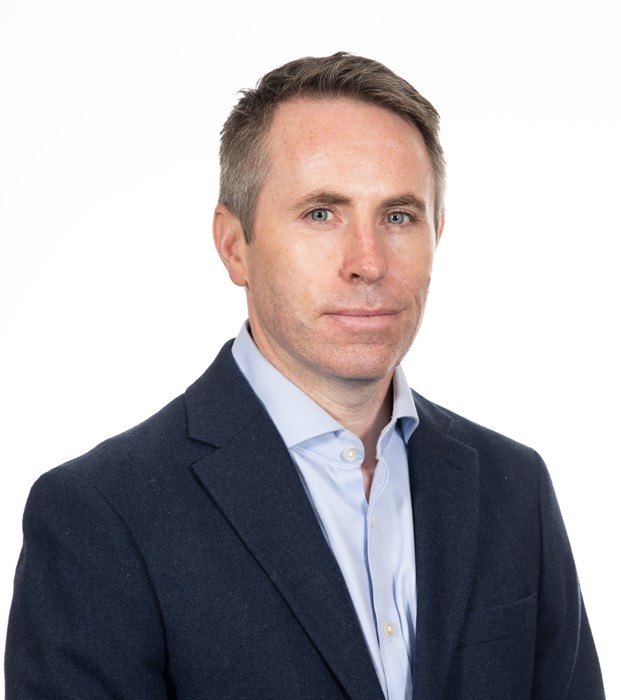 I am honored to be nominated to serve as the next President-Elect at APPAM. My goal with this role is to strengthen APPAM's reputation as an inclusive, rigorous and relevant venue for public policy and management. Recent years have placed both extraordinary demands on public services, as well as new opportunities to research innovative approaches to help the public. I believe that APPAM's group of interdisciplinary scholars is better placed than any others to offer both critical analysis and solutions when it comes to making public services work for all people. I am excited to work with an excellent Policy Council and APPAM staff to help to broaden our membership and deepen our impact.
I am honored to be nominated to serve as the next President-Elect at APPAM. My goal with this role is to strengthen APPAM's reputation as an inclusive, rigorous and relevant venue for public policy and management. Recent years have placed both extraordinary demands on public services, as well as new opportunities to research innovative approaches to help the public. I believe that APPAM's group of interdisciplinary scholars is better placed than any others to offer both critical analysis and solutions when it comes to making public services work for all people. I am excited to work with an excellent Policy Council and APPAM staff to help to broaden our membership and deepen our impact.
I attended my first APPAM meeting in 2002 and have long valued the opportunity that it offers to think about the connection between policy design, implementation and the difference these make to people's lives. One of my proudest professional accomplishments was winning APPAM's Kershaw Award in 2014. I have had the good fortune to be involved with APPAM in a variety of ways. I have served as the program committee chair for the Public, Nonprofit and Public Finance Section on three occasions, on APPAM Policy Council from 2011-2014, and on ad-hoc committees such as the Committee on Policy Relevance, and the Kershaw award committee.
Outside of APPAM I have served as the President of the Public Management Research Association, and also have administrative experience as the Director of the La Follette School of Public Affairs, University of Wisconsin-Madison. I moved to Georgetown University to become the McCourt Chair in Public Policy at the McCourt School of Public Policy in 2018
Vice President Nominees
One will be elected; serves a 2-year term; there are two Vice Presidents on APPAM's Executive Committee and Policy Council, serving staggered terms.
Heather Campbell, Claremont Graduate University
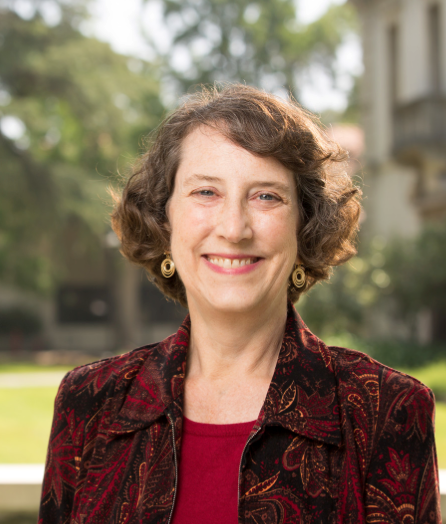 I am the Thornton F. Bradshaw Professor in Public Policy, and also Director of the Division of Politics and Economics in the School of Social Science, Policy and Evaluation at the Claremont Graduate University, and I am so pleased to be nominated to serve as the Vice President of APPAM, and hope I will be able to contribute as your Vice President.
I am the Thornton F. Bradshaw Professor in Public Policy, and also Director of the Division of Politics and Economics in the School of Social Science, Policy and Evaluation at the Claremont Graduate University, and I am so pleased to be nominated to serve as the Vice President of APPAM, and hope I will be able to contribute as your Vice President.
APPAM is my disciplinary home and this organization means much to me, so I work to help keep it strong. I still remember how thrilled I was when, in graduate school, I realized that such an organization existed and felt like I had found my people! And that has been true ever since. I have served APPAM as an institutional representative both from a large public university as well as a small private one, giving me a sweeping view of our academic membership. Currently I serve as the elected Chair of the Institutional Representatives, and I made it one of my goals better to understand what the non-academic members want and need from our organization. I have also served as a representative of the Institutional Representatives on the Policy Council and so am familiar with its workings. The Chair of the Institutional Reps also serves on the Policy Council and is part of the team that not only meets bi-yearly, but responds between meetings to urgent issues that may arise.
My research focuses on Environmental Justice, which ties it broadly to many of APPAM’s central topical concerns. As Susan Gooden points out in her book on Race and Social Equity (2015), racial inequities are saturated in the US, such that environmental injustice impacts housing and health, which impacts education and criminal-justice interactions, which impact labor-force participation and economic well-being. I’ve been proud to bring my growing, research-based understanding of this saturation to the service of APPAM and to our increasingly successful results to diversify our discipline. I hope I can continue to do this work as your Vice President.
Ingrid Ellen, New York University
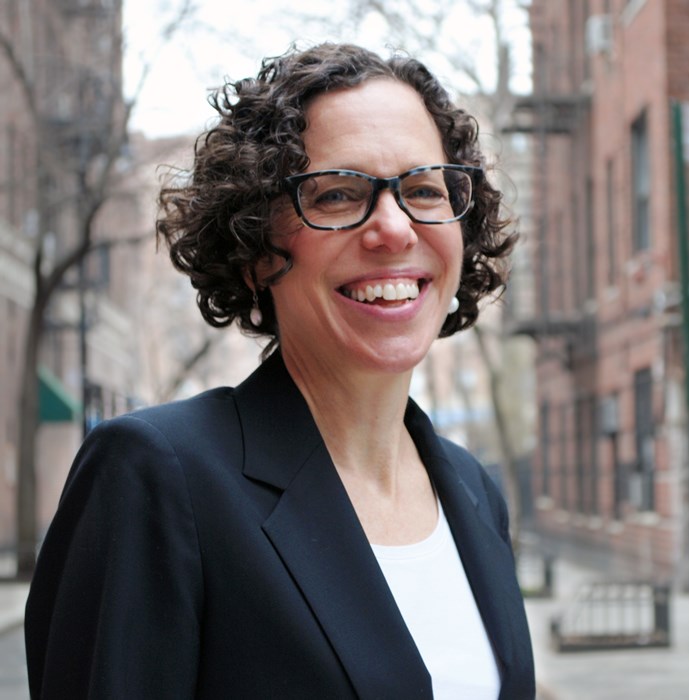 I am honored to be a nominee for APPAM Vice President and to have a chance to serve the association’s members. APPAM has been a professional home for me throughout my career. I have regularly attended the conference since I was a graduate student, as I think there is no other venue that brings together the same mix of multidisciplinary researchers and practitioners to engage with policy research. Over the years, I have served on the APPAM Policy Council, the conference program committee, the Vernon Prize committee, and the Dissertation Prize committee. I also currently serve as Policy Retrospectives editor for JPAM. If elected as Vice President, I would hope to continue APPAM’s work to diversify the association’s membership, support junior scholars, and build connections among researchers, practitioners, and policymakers.
I am honored to be a nominee for APPAM Vice President and to have a chance to serve the association’s members. APPAM has been a professional home for me throughout my career. I have regularly attended the conference since I was a graduate student, as I think there is no other venue that brings together the same mix of multidisciplinary researchers and practitioners to engage with policy research. Over the years, I have served on the APPAM Policy Council, the conference program committee, the Vernon Prize committee, and the Dissertation Prize committee. I also currently serve as Policy Retrospectives editor for JPAM. If elected as Vice President, I would hope to continue APPAM’s work to diversify the association’s membership, support junior scholars, and build connections among researchers, practitioners, and policymakers.
My work mostly focuses on housing policy, community development, and residential segregation. I have master’s and PhD degree in public policy, and I have been a faculty member at NYU Wagner for over 20 years and a faculty director at the NYU Furman Center for most of that time. I also have experience outside of academia, having worked for the New York City Department of Housing and Abt Associates prior to getting my PhD and having held visiting positions at the Urban Institute, the Brookings Institution, and the U.S. Department of Housing and Urban Development.
Marci Ybarra, University of Wisconsin-Madison
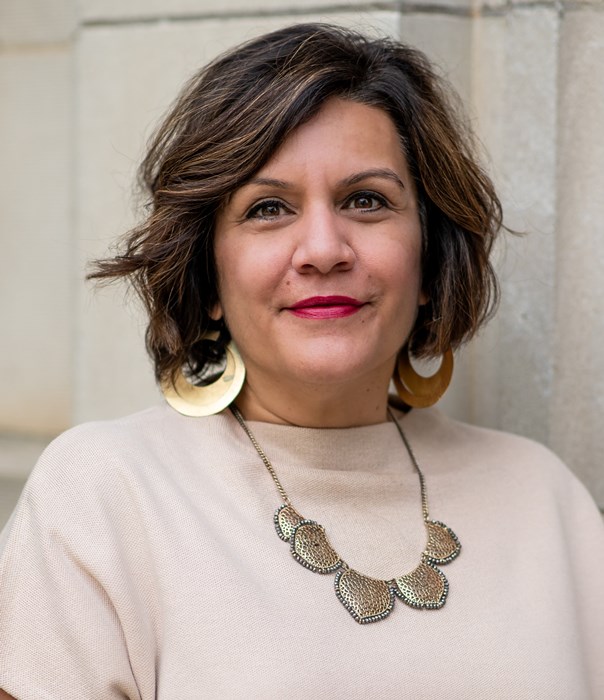 I am honored to be nominated to serve as the Vice President of the APPAM Policy Council, which I have been a member of since 2019. I have had the good fortune of attending and presenting at APPAM since I was doctoral student at the University of Wisconsin. I hold a PhD in Social Welfare/Work from the Sandra Rosenbaum School of Social Work, University of Wisconsin-Madison where I am also an associate professor and an affiliate of the Institute for Research on Poverty and the Center for Demography and Ecology. I am also an affiliate of the Lab for Economic Opportunities, University of Notre Dame, a current member of the National Academy of Sciences Committee on Addressing the Long-term Impact of the COVID-19 Pandemic on Children and Families, and a past member of the Family Self-Sufficiency Research Technical Working Group sponsored by the Administration for Children and Families and Office of Planning, Research, and Evaluation.
I am honored to be nominated to serve as the Vice President of the APPAM Policy Council, which I have been a member of since 2019. I have had the good fortune of attending and presenting at APPAM since I was doctoral student at the University of Wisconsin. I hold a PhD in Social Welfare/Work from the Sandra Rosenbaum School of Social Work, University of Wisconsin-Madison where I am also an associate professor and an affiliate of the Institute for Research on Poverty and the Center for Demography and Ecology. I am also an affiliate of the Lab for Economic Opportunities, University of Notre Dame, a current member of the National Academy of Sciences Committee on Addressing the Long-term Impact of the COVID-19 Pandemic on Children and Families, and a past member of the Family Self-Sufficiency Research Technical Working Group sponsored by the Administration for Children and Families and Office of Planning, Research, and Evaluation.
My research considers the role of the social safety net and other provisions in advancing (or not) the socioeconomic well-being of low-income families with an emphasis on poor, single parent, and immigrant families. As a mixed-method researcher, I have used secondary nationally representative, county, and city-level survey data sets as well originally collected survey data, administrative data, participant-observations of caseworkers and clients, and interviews with administrators, frontline staff, and clients in state and nonprofit agencies. My methodological approach to research is in service to understanding and ultimately improving the impact of multilevel systems in outcomes for low-income families and their children.
APPAM has been instrumental in shaping my research, career trajectory, and success. As a member, I’ve had access to a wonderful network who share my own goals of bridging the gap between research, policy, and practice while also providing vital feedback that makes our work and ideas stronger. As an underrepresented academic, I’ve had the privilege of working with APPAM to expand the diversity of our membership, an issue I have personally and professionally worked on since my days as an undergraduate student at Wayne State University. Since then, I have co-chaired my prior department’s Diversity, Equity, & Inclusion committee, and acted as a mentor for the Institute for Research on Poverty’s week-long dissertation bootcamp for underrepresented doctoral students from across the U.S. who conduct research on poverty and inequality. Expanding the diversity of APPAM, the academy, and policy work more generally is a career-long goal because our ideas, questions, work, and impact are strongest with manifold voices at the table. I hope to continue this important work in my role as Vice President of APPAM’s Policy Council. Thank you for your consideration.
Treasurer Nominee
One will be elected; serves a 2-year term.
Stephen Bell, NORC at the University of Chicago
 I am honored to be selected as a candidate for APPAM Treasurer. As a Senior Fellow doing research at NORC at the University of Chicago, I continue a life-long focus on evaluating the impact of social programs on historically marginalized and under-represented populations. In the course of doing many applied policy studies—on employment and training programs, K-12 educational reforms, income support for people with disabilities or food insecurity, housing assistance, agricultural reform in the developing world, and Head Start—I have contributed numerous methodological innovations to the literature. These have advanced the field by supplying new tools that expand the questions about program effects that experimental designs can address and by developing multi-component non-experimental causal inference methods with high internal validity when experiments cannot be conducted.
I am honored to be selected as a candidate for APPAM Treasurer. As a Senior Fellow doing research at NORC at the University of Chicago, I continue a life-long focus on evaluating the impact of social programs on historically marginalized and under-represented populations. In the course of doing many applied policy studies—on employment and training programs, K-12 educational reforms, income support for people with disabilities or food insecurity, housing assistance, agricultural reform in the developing world, and Head Start—I have contributed numerous methodological innovations to the literature. These have advanced the field by supplying new tools that expand the questions about program effects that experimental designs can address and by developing multi-component non-experimental causal inference methods with high internal validity when experiments cannot be conducted.
As a long-time member of APPAM—participating in annual conferences for 38 years, serving a term on the Policy Council, and publishing in JPAM—I seek now to expand my service to an organization that has so enriched my career. That’s why I am stepping forward to rejoin the Policy Council in an Executive Committee role as Treasurer of APPAM. In that capacity, I would like to make contributions through these efforts in three areas: (i) work to assure the continued fiscal health of the organization, (ii) effectively report financial information on our status and progress to the Council and members, and (iii) expand the traditional Treasurer’s role to initiate activities seeking to invigorate and improve APPAM in areas related to budgetary and financial matters.
As an example of the latter, if elected Treasurer I will—with Policy Council approval—begin a dialogue that shares with all members information intended to raise awareness of the many ways in which the financial resources of the Association advance tangible goals that matter to our community . . . in their professional lives as scholars, policymakers, and public managers/practitioners. The power of the APPAM budget is constantly at work, making a difference in various opportunities and supports in our careers. Many members may not recognize this. As Treasurer, I would like to work with the Association’s communications team to convey to the membership the range of contributions our budget supports—one “featured” contribution at a time (with the dollar amount indicated to underline the importance of each contribution). By letting members see “what the Association is doing for me” this knowledge sharing will inspire greater commitment to the organization and its purposes, including broader participation in APPAM activities and more willing financial support (through dues and other outlays as requested). These kinds of behaviors are consistently shown to be the result of enhanced understanding of how funds in an organization are turned into outputs of value.
If elected, my guidance of the financial ship at APPAM will draw on a number of aspects of my background and experience. At a broad level, I have deep knowledge of many dimensions of business operations within 6- or 7-digit-digit budgets, having spent a 40-year career in private sector organizations involved in the leadership of large-scale impact evaluations funded at the multi-million-dollar level by government clients that (rightly) care a god deal about fiscal efficiency and accountability. In addition to serving as a Senior Fellow at NORC, I also have served as a Senior Fellow and Vice President at both Abt Associates and Westat, with further high-level research leadership involvement at the Urban Institute. Other professional, educational, and community service experiences that strengthen my ability to carry out Treasurer duties at a high level include:
- Three summer internships in commercial banking—covering all aspects of retail operations, both “out front” customer transactions and “back room” accounting practices;
- Multiple degrees in economics, including a Ph.D. from the University of Wisconsin-Madison and a year’s undergraduate study of accounting;
- A three-year role leading the resource stewardship committee in a faith community; and
- Twenty years advising executive leadership at three large private sector firms on business strategies and management decisions for their evaluation project portfolios.
As important as the background capabilities and leadership ideas noted here will be to the contributions I can make as APPAM Treasurer, I feel particularly confident I can make a difference because I know I can devote whatever amount of time is needed to fulfill the needs of the position throughout my tenure. I have the full support of my employer to take on this role and, if elected, can capitalize on late-career flexibility in setting the pace of my other professional commitments to ensure the Treasurer’s job gets all the time it deserves throughout my term.
A final point about where I am coming from as a candidate; I am passionate in my own research to determine which social policies and programs undertaken to assist historically marginalized and under-represented Americans actually make things better—and which of the directions that might be undertaken have benefits that most justify their costs. This focus on finding strategies that work and, especially, strategies that work best taking resource considerations into account, will guide my leadership contributions in the APPAM Policy Council as Treasurer—in how I frame issues and in the decisions I urge. I believe that approach will well serve the Association, and all of us APPAM members.
Liana Fox, Census Bureau
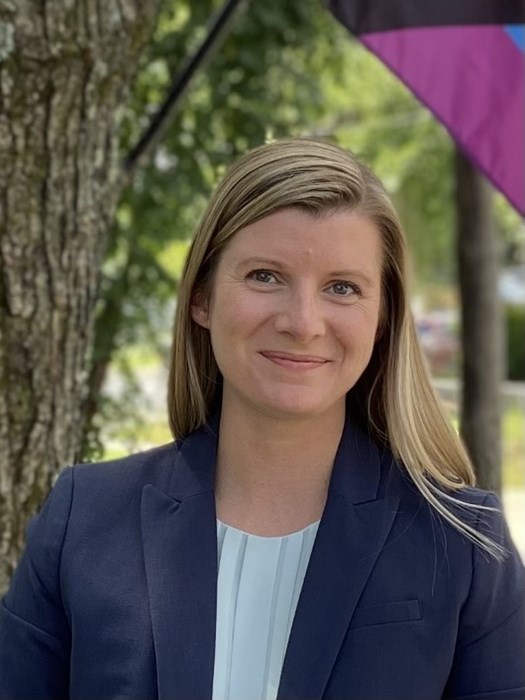 I am thrilled to be nominated to return to the APPAM Policy Council. As an interdisciplinary researcher, I have always considered APPAM to be my intellectual home. I joined APPAM during graduate school and have presented, discussed or organized a panel at the Fall Research Conference nearly every year since then, most recently serving as a researcher in a non-academic setting representative to the Policy Council. I look forward to the opportunity to continue to serve as Treasurer while fostering relationships across the three pillars of APPAM: academia, the government, and policy/research organizations.
I am thrilled to be nominated to return to the APPAM Policy Council. As an interdisciplinary researcher, I have always considered APPAM to be my intellectual home. I joined APPAM during graduate school and have presented, discussed or organized a panel at the Fall Research Conference nearly every year since then, most recently serving as a researcher in a non-academic setting representative to the Policy Council. I look forward to the opportunity to continue to serve as Treasurer while fostering relationships across the three pillars of APPAM: academia, the government, and policy/research organizations.
I currently lead the U.S. Census Bureau's Economic Characteristics Area, which produces our official income, poverty, and inequality statistics. In this role, I conduct research on potential improvements to the Supplemental Poverty Measure, working in partnership with researchers from the Census Bureau, other federal agencies, and academia. My research agenda has primarily focused on understanding poverty and labor market outcomes among middle-class and low-wage workers with an emphasis on governmental policies and programs. Most recently, I have been involved in projects analyzing the impact of the expanded Child Tax Credit on child poverty and developing more frequent measures of poverty.
My background spans academia, private sector, and government. Prior to joining the Census Bureau, I held a post-doc at the Swedish Institute for Social Research (SOFI) at Stockholm University, worked on program evaluation at Abt Associates, and analyzed the impact of minimum wage policies at the Economic Policy Institute. As a continuing member of the Policy Council, I would bring my experience working collaboratively alongside policy analysts, economists, and sociologists to continue to advance APPAM’s mission and work across disciplinary silos. I am committed to ensuring that APPAM continues to develop as an inclusive organization that promotes diversity and supports the development of students and newer members through further expansions to our Equity and Inclusion Fellowships and our mentoring program. Thank you for the opportunity to serve APPAM!
Lisa Gennetian, Duke University
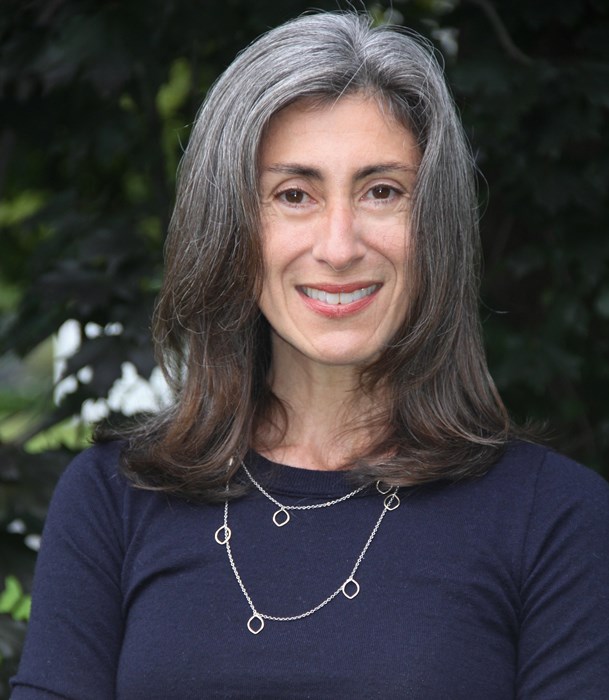 What a privilege to be nominated to this year’s slate as an officer of APPAM! Serving on policy council so far, I am ever-enthusiastic about APPAM’s mission and impact; and, also so humbled by all of the good work remaining to cultivate an open, inclusive, equitable, sustainable, and transformational professional home for scholars and practitioners. It’s a lot, but I know that APPAM can do it! One reason I feel so confident is because of APPAM’s leadership and their vision. As a first-generation scholar, and a career juggling disciplinary boundaries (among other things), APPAM welcomed me. I would be honored to join its leadership team as treasurer to play a role in ensuring the fiscal health and robustness of the organization. I believe that this is a key foundation for APPAM’s continued sustainability.
What a privilege to be nominated to this year’s slate as an officer of APPAM! Serving on policy council so far, I am ever-enthusiastic about APPAM’s mission and impact; and, also so humbled by all of the good work remaining to cultivate an open, inclusive, equitable, sustainable, and transformational professional home for scholars and practitioners. It’s a lot, but I know that APPAM can do it! One reason I feel so confident is because of APPAM’s leadership and their vision. As a first-generation scholar, and a career juggling disciplinary boundaries (among other things), APPAM welcomed me. I would be honored to join its leadership team as treasurer to play a role in ensuring the fiscal health and robustness of the organization. I believe that this is a key foundation for APPAM’s continued sustainability.
How am I qualified to be the next treasurer (you may ask)? Some might say it is because I am a trained economist. This might help. More importantly, however, is my experience. I have been privileged to be involved with dozens of big team science types of large-scale studies that draw from experts across multiple institutions and disciplinary homes with their own tailored budget and fiscal expectations and norms. Navigating the millions of dollars in research budgets and funding is no small task. Second, within a year of joining the Duke University community I was asked by the Provost office to Chair a large multi-faculty membership committee to review each interdisciplinary unit on campus, with an eye toward providing recommendations to streamline resources and adjust Provost generated budget allocations. This was challenging but also rewarding work and many of the committee’s recommendations are actively in process. Third, I have served on several non-profit boards. Fiscal health and stability is always a core concern, requiring both short-term and long-term clear-eyed strategies to withstand ebbs and flows of the availability of resources and the economic landscape.
I see APPAM as an incubator of policy and research innovation with the responsibility of inclusion. My hope is that the disciplinary diversity of my own scholarship—particularly regarding my work focused on the well-being of children, the good fortune of my collaborations across academic and nonacademic sectors, and the deep and broad experience ensuring the fiscal health of research studies and community organizations, is a strength that I can bring to catalyze positive change.
Back to top of page.
One will be elected for a 4-year term.
Jacob Faber, New York University
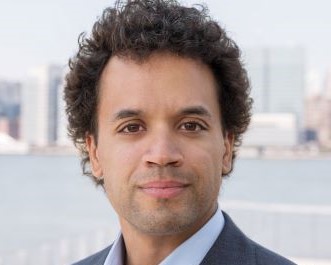 I am honored to be considered for the Academic Researcher position on the APPAM Policy Council. I have benefited greatly from APPAM programming throughout my early career, and I appreciate the opportunity to serve. Because I study the roles of institutions in shaping racial inequality in the United States, I approach this position from an anti-racist perspective. I believe the Policy Council can be a force for change within APPAM and the broader scholarly community through—for example—programs designed to build the mentoring networks of graduate students, postdocs, and junior faculty of color.
I am honored to be considered for the Academic Researcher position on the APPAM Policy Council. I have benefited greatly from APPAM programming throughout my early career, and I appreciate the opportunity to serve. Because I study the roles of institutions in shaping racial inequality in the United States, I approach this position from an anti-racist perspective. I believe the Policy Council can be a force for change within APPAM and the broader scholarly community through—for example—programs designed to build the mentoring networks of graduate students, postdocs, and junior faculty of color.
I have experience in conference planning, graduate student mentorship, and high-impact publishing. I have served as chair of the NYU Sociology Department’s Committee on Racial Diversity and Racial Inequality, Co-Director of NYU’s Urban Initiative, and on the advisory board of several groups working for a more inclusive academy. I have received numerous awards for my teaching and research on racial inequality, including NYU's Making a Difference Award, NYU Wagner's Professor of the Year Award, the SSSP’s Michael Harrington Award, and APPAM’s 40 for 40 Fellowship for Outstanding Early Career Research Professionals.
Although I am trained as a sociologist, I have always considered the interdisciplinary APPAM community to be my intellectual home, which is why I have contributed some service capacity in almost every APPAM Fall Research Conference since I was a graduate student in 2013. I enjoy the conference more and more each year, as the conversations become more diverse and the quality of work improves. I hope I can contribute to this community as much as I have gained from it and draw in even more participants from marginalized groups.
Daniel Matisoff, Georgia Tech University
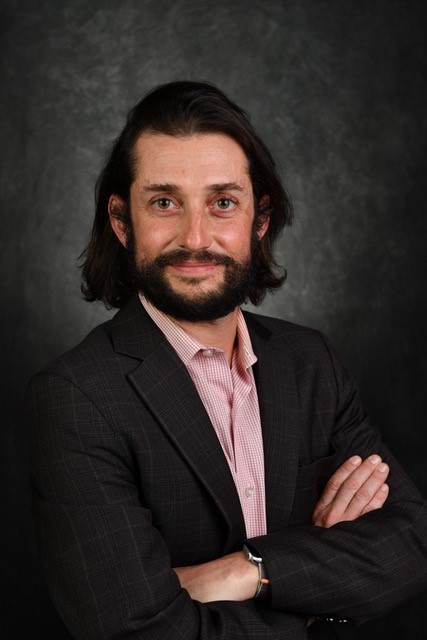 Daniel Matisoff is an Associate Professor in the School of Public Policy at Georgia Institute of Technology. Matisoff has been extremely active in APPAM, having attended every APPAM since 2007, chairing the Environment and Natural Resources Division in 2019, and serving on the World Environmental Citizen Prize selection committee. He is an active reviewer for JPAM and was nominated for a reviewer award in 2021. At Georgia Tech, he developed a new Sustainable Energy and Environmental Management degree (MSEEM) targeted at sustainability practitioners.
Daniel Matisoff is an Associate Professor in the School of Public Policy at Georgia Institute of Technology. Matisoff has been extremely active in APPAM, having attended every APPAM since 2007, chairing the Environment and Natural Resources Division in 2019, and serving on the World Environmental Citizen Prize selection committee. He is an active reviewer for JPAM and was nominated for a reviewer award in 2021. At Georgia Tech, he developed a new Sustainable Energy and Environmental Management degree (MSEEM) targeted at sustainability practitioners.
This program has seen sustained growth in the last three years and now exceeds the size of all other MS programs within the School of Public Policy. He is interested in broadening the scope of participation to engage more practitioners and more subfields of public policy, and helping the Policy Council think through mechanisms for keeping policy degrees relevant in an era of increased specialization. As a member of the policy council, he is interested in helping build bridges across APPAM sections to promote greater inter-APPAM communication through joint sessions and roundtables. Further, he is interested in exploring ways to expand the inclusiveness of APPAM to incorporate greater student participation, building on his strong student engagement efforts at Georgia Tech.
Amy Ellen Schwartz, University of Delaware
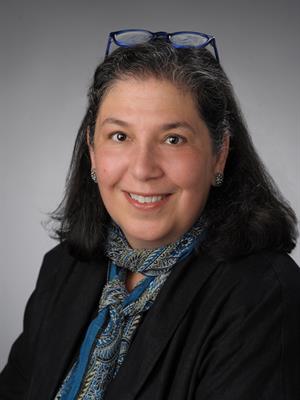
I am delighted and honored to be nominated for the APPAM policy council. APPAM has been a critical professional and intellectual home for me and I am eager to contribute to its continued success.
As a policy economist, my research has spanned a broad range of topics relating to education, health, cities, and public policy. In more than twenty years of collaborative research with policy makers and practitioners in New York City, I have leveraged detailed micro-data on New York City public school children and their schools and neighborhoods to illuminate social problems, and identify practical policy solutions. These include studies of school lunch, pupil transportation, neighborhood crime and other "outside the classroom" factors such as access to food, school buses and neighborhood change. My current research focuses on the social and policy determinants of student academic success and well-being, examining the role of public housing and homeownership programs, school choice, the spatial dimensions of inequality, and the consequences of the COVID pandemic.
In September, I was appointed Dean of the Joseph R. Biden, Jr. School of Public Policy and Administration at the University of Delaware, leaving Syracuse University's Maxwell School, where I was the Daniel Patrick Moynihan Chair in Public Affairs and Economics. Prior to that I was a Professor of Public Policy, Education and Economics at NYU’s Wagner School of Public Service. At both NYU and Maxwell, I served terms as director of the doctoral program and at NYU, I directed the Institute for Education and Social Policy, an interdisciplinary research center focused on issues in urban education and evaluating the impact of public policy on urban students.
Throughout my academic career, I have been deeply committed to the education of new researchers in public policy and administration, to bringing the light of evidence to heated debates and addressing inequities and inequality. As a member of the council, I would work toward advancing those same goals, making APPAM an accessible and welcoming home for the broadest community of scholars and practitioners working to making the world a better place.
Back to top of page.
One will be elected for a 4-year term.
Sarah Cordes, Temple University
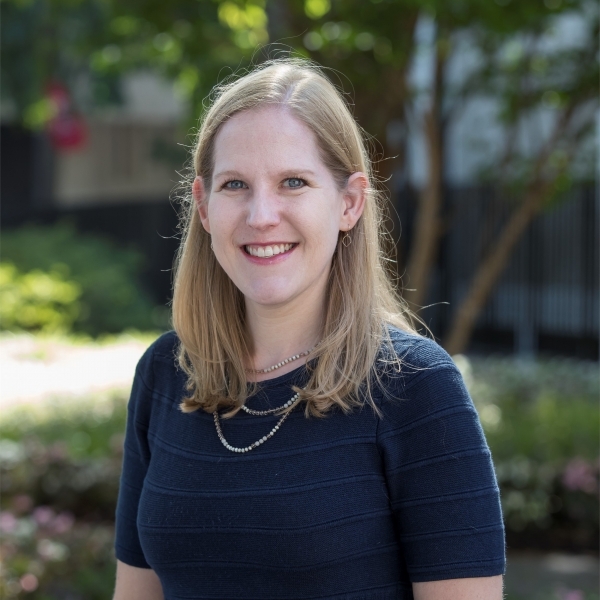
It is an honor to be nominated for the APPAM Policy Council as an early career academic researcher. APPAM has played a pivotal role in my professional development, first as a graduate student and then as a junior professor and I am excited about the opportunity to serve. I am currently an Associate Professor of Policy, Organizational, and Leadership Studies at Temple University and my research lies at the nexus of education and urban policy with a focus on reducing educational inequities. More specifically, my work explores how the urban context--including school choice, mobility, housing, and geography--shapes student outcomes.
I have been an active and enthusiastic member of APPAM for over a decade and have served the APPAM community in a number of capacities. As a member of the planning committee for the Pre-Conference Professional Development Workshop Planning Committee in 2013, the first student representative on the Policy Council from 2014-2015, a member of the Professional Development Committee, and most recently, as Co-Chair for the 2022 Conference Subcommittee on Housing, Community Development, and Urban Policy. I also had the honor of being selected as a recipient of the APPAM 40 for 40 Fellowship for Outstanding Early Career Research Professionals.
Two things I greatly admire about APPAM are its interdisciplinarity and supportive environment for junior scholars. As someone whose own research draws on frameworks across education, public policy, and economics, APPAM has provided me with the opportunity to engage with scholars across a range of other disciplines such as sociology, psychology, and political science. I believe that such interactions are key in to pushing both scholarship and policy forward. In addition, I have always found the APPAM community to be incredibly supportive of both graduate students and junior scholars—through the mentoring program, webinars for job market candidates, and senior scholars simply taking the time to engage meaningfully with junior colleagues about their work. The supportive nature of the organization has been key to my own growth and development as I know it has to many others. Therefore, as a policy council member, I will work hard promote interdisciplinary dialogue and interactions and expand opportunities to support the next generation of policy scholars.
Abraham Song, Pepperdine University and Milken Institute
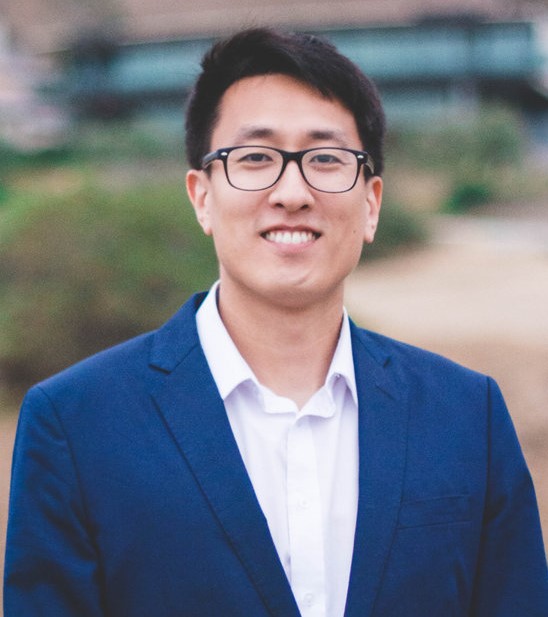 APPAM has played a very important, formative role in my development as a policy scholar, and I’m honored to be considered for a position on the APPAM Council. I am an Assistant Professor of Public Policy and Education at Pepperdine University’s Graduate School of Education and Psychology. Concurrently, I am a research affiliate at Milken Institute’s Center for Regional Economics.
APPAM has played a very important, formative role in my development as a policy scholar, and I’m honored to be considered for a position on the APPAM Council. I am an Assistant Professor of Public Policy and Education at Pepperdine University’s Graduate School of Education and Psychology. Concurrently, I am a research affiliate at Milken Institute’s Center for Regional Economics.
My research interests are in innovation, science and technology policies, and broadly economic development. APPAM research conference was not only the first academic conference I’ve attended as a doctoral student, but it is the Association that I’ve been able to grow with and contribute to. I’ve worked with Tara to kickstart the first student conference at George Mason University. I felt strongly that there was a shared commitment to bring public good to society using evidence-based research.
But I believe that APPAM’s best days are still ahead. In the post-COVID world, ravaged by geopolitical instabilities, climate challenges, and economic turbulences, we need sound, evidence-based policies to navigate us. I believe that there’s still quite a lot of potential that can be built when practitioners and academics come together. I would love to leverage my position as an academic and a practitioner to bridge the gap. It would be a great honor for me to give back to APPAM and be at service to its community.
Sebastian Tello-Trello, University of Virginia
 Hi Everyone! I'm grateful for the nomination to the APPAM Policy Council. I have attended (presenting, chairing, and discussing) the APPAM conference since I was in graduate school and, more recently, have been involved in reviewing conference proposals and papers for the conference. I'm excited to be involved in this role and see how we can improve the organization to be more equitable, accessible, welcoming, informative, impactful, and fun.
Hi Everyone! I'm grateful for the nomination to the APPAM Policy Council. I have attended (presenting, chairing, and discussing) the APPAM conference since I was in graduate school and, more recently, have been involved in reviewing conference proposals and papers for the conference. I'm excited to be involved in this role and see how we can improve the organization to be more equitable, accessible, welcoming, informative, impactful, and fun.
Regarding my current position, I am an assistant professor of public policy and economics at the Frank Batten School of Leadership and Public Policy at the University of Virginia. I received my Ph.D. in Economics from Vanderbilt University. My main area of work is health economics, focusing on insurance, Medicaid, mental health, and HIV. I'm also the co-host of a podcast called "The Hidden Curriculum" in which we (with Alex Hollingsworth) invite guests to talk about topics of professional development that one doesn't learn in grad school or usually only learns through the grapevine. I'm also part of the team of EconThaki, an initiative whose goal is to reduce the barriers and friction for students from Latin America to get admitted to graduate school in the U.S. We are specifically interested in targeting traditionally disadvantaged students. My hope during my tenure is to get more people engaged with the different processes and opportunities that APPAM offers and listen carefully to the recommendations and advice from its community.
Back to top of page.
One will be elected for a 4-year term.
Anuj Gangopadhyaya, Urban Institute
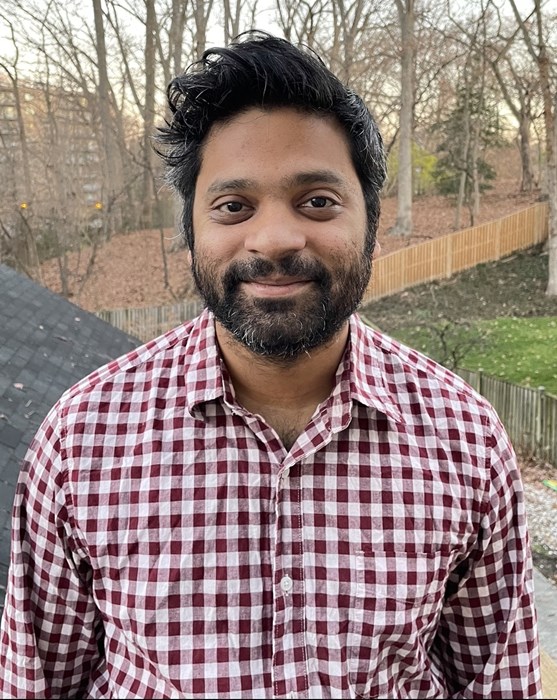 I am honored to be nominated to join the APPAM Policy Council. From my student days through my current work as a health policy researcher at the Urban Institute, my career has greatly benefited from experiences facilitated through the APPAM community. Serving on the Policy Council would help fulfill my goals of giving back to this rich policy research community while also helping to ensure the resources developed through this community are widely available to scholars, analysts, policymakers, and stakeholders from a wide range of backgrounds.
I am honored to be nominated to join the APPAM Policy Council. From my student days through my current work as a health policy researcher at the Urban Institute, my career has greatly benefited from experiences facilitated through the APPAM community. Serving on the Policy Council would help fulfill my goals of giving back to this rich policy research community while also helping to ensure the resources developed through this community are widely available to scholars, analysts, policymakers, and stakeholders from a wide range of backgrounds.
My career has centered on investigating the ways in which safety net policies affect human capital development, labor markets, wellbeing, and healthcare access and use. From a policy standpoint, I have closely assessed effects of expanding the earned income tax credit to low income mothers, expanding Medicaid eligibility to specific populations, and reforming Medicare cost-sharing design and benefit packages, and bring a broad expertise across these major programs. Moreover, I have concentrated on hospital industrial organization and implications for rural healthcare delivery, and have assessed between- and within-hospital drivers of racial and ethnic disparities in access to high-quality inpatient care. I appreciate the myriad ways in which policies may interact to support disadvantaged populations and am keen on understanding the ways in which policy can further adapt to address newer challenges presented through the pandemic, climate change, and political inaction. I have served as co-chair for APPAM's Health Policy topics for the annual fall conference the past two years; this has been a rewarding experience that provides insight on the ways in which policy conversations are evolving.
I aim to dedicate my time on the Policy Council to further the ways APPAM has enriched our community - from sharpening analytic skills, highlighting rigorous and often creative research designs, raising awareness of the policy landscape, expanding and further broadening APPAM's Equity and Inclusion Fellowship Program to strengthen the field, and connecting with a community that is deeply concentrated on shaping and evaluating policy to further scientific knowledge and improve lives
LaShawn Richburg Hayes, Insight Policy Research
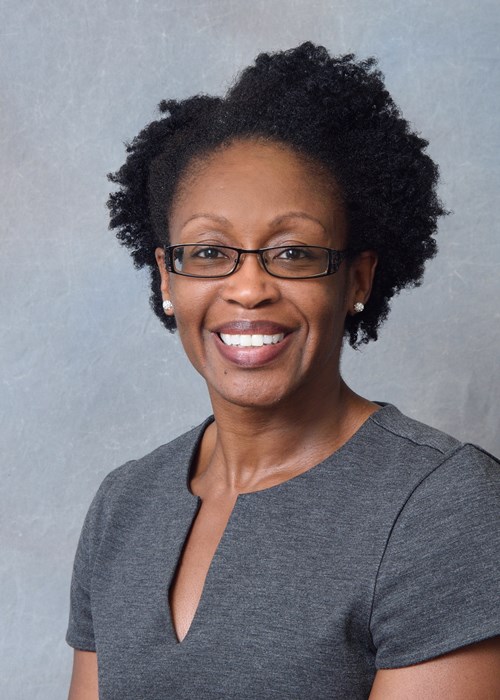 I am honored to be considered for the Researcher Working in a Non-Academic Setting position on APPAM’s Policy Council. Over the years, I have had the opportunity to present research, chair panels, and contribute as a discussant at APPAM. The interactions and engagement at conferences has always improved my work through its interdisciplinary research and policy focus.
I am honored to be considered for the Researcher Working in a Non-Academic Setting position on APPAM’s Policy Council. Over the years, I have had the opportunity to present research, chair panels, and contribute as a discussant at APPAM. The interactions and engagement at conferences has always improved my work through its interdisciplinary research and policy focus.
As the Vice President, Education at Westat Insight—a wholly owned subsidiary of Westat—my work principally focuses on finding ways to improve academic outcomes among students at-risk of not matriculating or completing a degree. A trained labor economist, most of my research has involved designing and implementing randomized controlled trials (prior to working at Westat Insight, I worked at MDRC for over 17 years where I led the postsecondary education division). My more recent work has focused on employing culturally responsive and equitable evaluation (CREE) principles to evaluate targeted community college programs serving single parents and students who self-identify as a male of color. I am a past president of the Society for Research on Educational Effectiveness (SREE) and a founding board member of SREE’s Researchers of Color affiliation group. I am also an advisor for We All Count, a project on data equity.
During my time on the board, I would like to contribute to the work of bringing diverse voices, perspectives, and CREE methods to APPAM.
Christina Yancey, Department of Labor
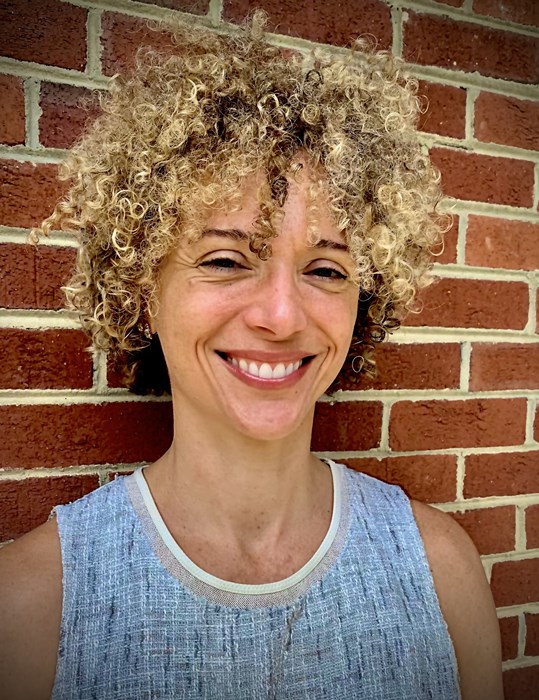 I would be honored to serve on the APPAM Policy Council. As a PhD-trained researcher with a decade of field research experience, I’ve spent the past 8 years at the U.S. Department of Labor sponsoring the development of rigorous science to improve federal policy and programs. My distinct lens includes a wealth of practical experience in understanding the opportunities and challenges in the evidence-to-use cycle.
I would be honored to serve on the APPAM Policy Council. As a PhD-trained researcher with a decade of field research experience, I’ve spent the past 8 years at the U.S. Department of Labor sponsoring the development of rigorous science to improve federal policy and programs. My distinct lens includes a wealth of practical experience in understanding the opportunities and challenges in the evidence-to-use cycle.
During my time serving on the APPAM Policy Council, I propose to bring targeted attention to two priorities: amplifying the pipeline of diversity in expertise, discipline, and perspective, including by operationalizing APPAM’s unique role in supporting that practice; and increasing attention to the accessibility of research for ranges of use, in part by cultivating inclusive roles in the science-to-practice arena for experts beyond those generating the science.
At the time of this election, I am preparing to transition from my current position as the U.S. Department of Labor’s Chief Evaluation Officer to the American Institutes for Research’s Vice President of Workforce Program Area (in January 2023). While my professional role is shifting, my focus on supporting innovative science-for-purpose to improve programs and policies remains the same, and I will bring that passion to support the APPAM Policy Council.
Back to top of page.
Institutional Member Representative
One will be elected for a 4-year term
**Please note: only institutional members vote for the institutional member representative on the Policy Council.**
TJ McCarthy, University of Southern California
 I am an Associate Professor (Teaching) at the USC Sol Price School of Public Policy. I teach courses in economics for public policy, applied econometrics, and cost-benefit analysis, and my research activities focus on health, education, and veterans policy.
I am an Associate Professor (Teaching) at the USC Sol Price School of Public Policy. I teach courses in economics for public policy, applied econometrics, and cost-benefit analysis, and my research activities focus on health, education, and veterans policy.
I have served as an APPAM institutional representative since 2020, and have been part of the leadership team for APPAM’s Undergraduate Education Interest Group since its inception in early 2021.
I have substantial experience leading academic programs, having been the director of USC Price’s MPP, MS in Public Policy Data Science, and BS in Public Policy programs for three to five years each. I have also served in university-level positions including Faculty Fellow in the USC Center for Excellence in Teaching, member of USC’s Academic Senate, and leadership of several university committees.
Serving on the APPAM Policy Council would be an exciting opportunity to make meaningful contributions to the profession beyond my own university. My experience in leadership roles with responsibility for academic programs, departmental and university finances, and teaching excellence initiatives provides a strong foundation for productive service on the Policy Council. I am especially interested in supporting initiatives relating to development of undergraduate education and, more generally, working with both academic institutions and employers to ensure that training provided at the undergraduate, master’s, and doctoral levels is aligned with the current and future needs of the profession.
Back to top of page.